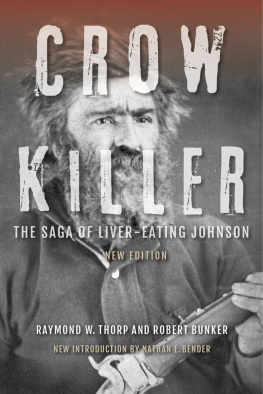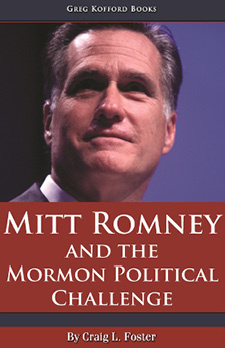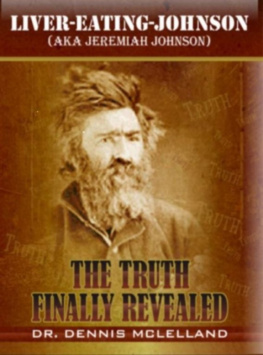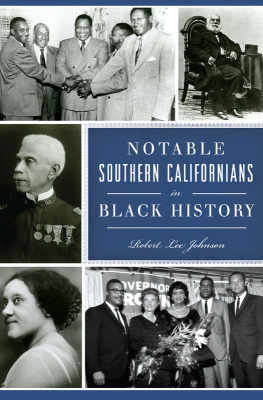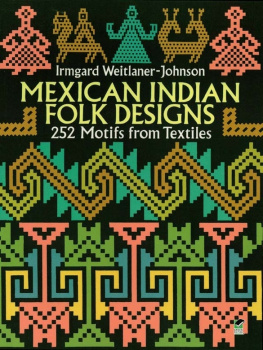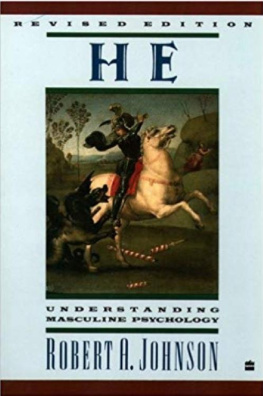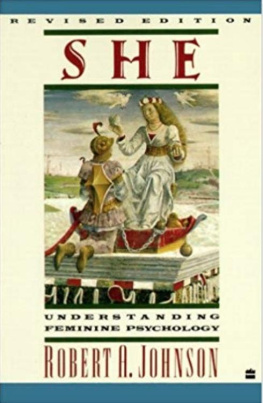This book is a publication of
Indiana University Press
Office of Scholarly Publishing
Herman B Wells Library 350
1320 East 10th Street
Bloomington, Indiana 47405 USA
iupress.indiana.edu
First Midland Book Edition 1983
1958, 1969 by Indiana University Press
Introduction and glossary 2015 by Indiana University Press
All rights reserved
No part of this book may be reproduced or utilized in any form or by any means, electronic or mechanical, including photocopying and recording, or by any information storage and retrieval system, without permission in writing from the publisher. The Association of American University Presses Resolution on Permissions constitutes the only exception to this prohibition.
The paper used in this publication meets the minimum requirements of the American National Standard for Information SciencesPermanence of Paper for Printed Library Materials, ANSI Z39.481992.
Manufactured in the United States of America
Names: Thorp, Raymond W., 18961966, author. | Bunker, Robert, 1918- author.
Title: Crow killer : the saga of Liver-Eating Johnson / Raymond W. Thorp and Robert Bunker ; new introduction by Nathan E. Bender ; foreword by Richard M. Dorson.
Description: New edition. | Bloomington : Indiana University Press, 2016.
Identifiers: LCCN 2015038418| ISBN 9780253020833 (pbk. : alk. paper) | ISBN 9780253021229 (e-book)
Subjects: LCSH: Johnston, John, 18241900. | PioneersMontanaBiography. | TrappersMontanaBiography. | Frontier and pioneer lifeMontana. | MontanaBiography.
Classification: LCC F731.J64 T48 2016 | DDC 978.6/01092dc23
LC record available at http://lccn.loc.gov/2015038418
1 2 3 4 5 20 19 18 17 16 15
INTRODUCTION
THIS BOOK, CROW KILLER: THE SAGA OF LIVER-EATING JOHNSON (1958, 1969), is one of the most misunderstood yet influential books ever written in the genre of American Mountain Man folklore. Presented as a biography of John Johnston (his legal name), who became infamous on the frontier as John Liver-Eating Johnson (c. 18241900), the account is purportedly based on oral sources that made a lie of previous histories. Rather amazingly, historians and folklorists for decades uncritically accepted the spectacular story of a mountain man in the 1840s fighting a one-man war on the Crow Nation with his Hawken rifle and Bowie knife, routinely cutting out and eating the livers of his foes, in revenge for the murder of his bride and unborn child.
About the turn of the century, more-critical researchers realized the many historical shortcomings of the text. Examination of Raymond Thorps oral sources for his book finds his two main informants being the Wild West showman Doc Carver and White-Eye Anderson, one of Johnsons former trapping partners. However, Bob Edgar of Old Trail Town, in Cody, Wyoming, where Johnson was reburied in 1974, informed me that his years of efforts to verify the Johnson folklore of his war on the Crows had led him to nothing but dead ends. Chief Joseph Medicine Crow, historian of the Crow Nation, maintains that the central story is fictitious, not supported by Crow oral history, and that Johnson had actually been a close friend of theirs with whom they often ate raw deer livers (Bender 2006a, 15). Several other of Thorps supposed oral accounts appear to be ultimately derived from widely reprinted newspaper articles of Johnson killing Sioux and Blackfeet. Dennis McLelland, in his 2008 book, The Avenging Fury of the Plains, enthusiastically points out many historical inaccuracies within Thorps stories. Relabeling Crow Killer as historical fiction, though, is also misleading in that real historical fiction is a purely creative endeavor inspired by real people and events. Instead, Thorp and Bunker intentionally created a mythic American saga under the guise of passing on legitimate oral traditions of a historical frontiersman.
This was not Thorps first effort at intentionally romanticizing Western figures as American heroes. His previous book, on Bowie knives, included much inventive mythologizing about Jim Bowie that was presented as history/folklore (Thorp 1948; Flayderman 2004, 448449, 481483). His hero-worshipping biography of Doc Carver attempted less successfully to do the same (Thorp 1957). Raymond Thorp is perhaps best viewed as a fiercely passionate historic propagandist who came to believe his own romantic creations. Co-author Robert Bunker never met Thorp in person or even saw his research notes. Bunkers role was to edit and reimagine a raw yet powerful manuscript into a comprehensive whole story.
In the 1950s, when America was coming into its own worldwide political influence as a leader of the Cold War, Western figures provided visions of truly American heroes and American values in which people wanted to believe. During this time, for example, the popular writings of Walter Noble Burns continued to influence the legends of Wyatt Earp, Billy the Kid, and Joaqun Murrieta in popular culture (Dworkin 2015). It was in this atmosphere that Crow Killer was also written and published. The current puzzle for historians and folklorists involves figuring out which parts of the book are invention and which parts are arguably legitimate in spite of Thorps propaganda campaign to turn Johnson into the ultimate Indian killer. Given that Johnson himself apparently claimed to have killed 1,299 Indians (Stevens 1889, 1), far more than Thorp and Bunkers estimate of between 400 to 500 (1969, 77), figuring out if such dramatic claims came from Johnsons self-promotional efforts, sensational journalists, his myth-making biographers, or sincere recollections from frontier peers is an exercise in evaluating threads of tradition amid overblown glitz.
By todays standards this book is notoriously politically incorrect in the authors desire to convey a bluntly racist nineteenth-century Western frontier perspective. Such contextual racism is actually described and analyzed within Herman Melvilles mid-nineteenth-century novel, The Confidence-Man: His Masquerade (2006, 149157, 453501), wherein the metaphysics of Indian hating by American backwoodsmen is discussed at length. Historically, Johnson savored his reputation as an Indian killer and portrayed himself as such in period newspaper interviews (Bender 2006a; Bender 2006b; Bender 2007). In fact, Johnson had quite a bit to do with manipulating his public image, and he may have even consciously modeled his own story after that of Tom Quick and Lewis Wetzel. Quick had declared a one-man war on the Delaware Nation in northwestern New Jersey in the 1700s (Leslie 1977), where Johnson was born and raised. Wetzel, known as Death Wind, was the frontiersman of the upper Ohio River Valley immortalized by the writings of Zane Grey, renowned for his ability to load his flintlock rifle on the run.
In 1884 Johnson starred in an early Wild West show with Calamity Jane and Curley, one of Custers Crow Indian scouts. In this traveling show Johnson reenacted and greatly dramatized his one-man Indian fights of the 1860s and 1870s and the eating of a Sioux warriors liver, though using Crow Indians as paid actors (Bender 2006a). This is apparently where Raymond Thorp got the idea of Liver-Eating Johnson fighting Crow Indians, no doubt during his work interviewing and writing the biography of Wild West showman Doc Carver. Whether other people who witnessed Johnsons performances also came away confused and then retold stories of him fighting Crow Indians, however plausible, has not yet been demonstrated.

